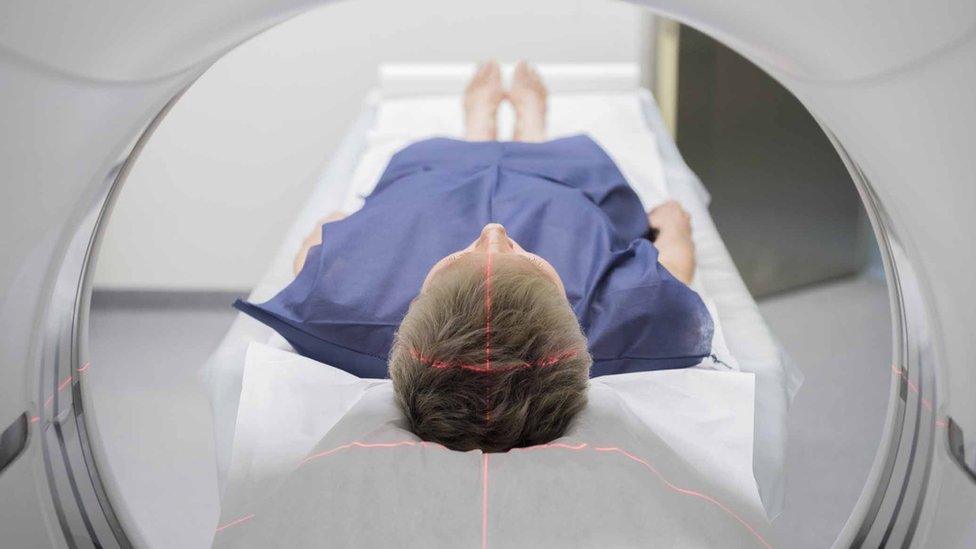Cancer: New gene tests mean Welsh patients could avoid chemo
- Published
'I have stage four cancer but avoided chemotherapy'
Thousands of Welsh cancer patients will be able to live longer without chemotherapy thanks to a new gene-testing service.
It will let doctors study hundreds more genetic changes in cancer cells.
More advanced-cancer patients could be offered alternative personal treatments so they can live life as normally as possible.
The state-of-the-art system is run by the Cymru Service for Genomic Oncology Diagnoses (CYSGODI).
Part of the All Wales Medical Genomic Service (AWMGS), based at Cardiff and Vale health board, it plans to expand testing capacity over the next 10 years.
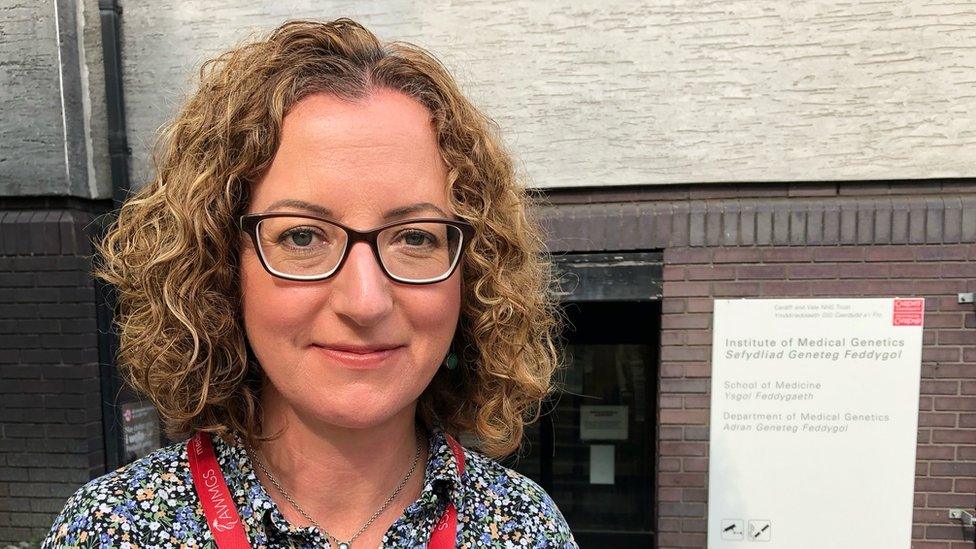
Cancer scientist Rhian White said they would now be able to see changes in 500 genes - up from 30
Head cancer genomics clinical scientist, Rhian White, said: "Cancer is a disease of the genome and the CYSGODI service means we're now able to expand our genomic testing for patients with cancer.
"Up until now we've only been able to detect genetic changes in around 30 genes, but the service means we're now able to detect changes in around 500 genes.
"We can also test many more types of tumours, so our service at the moment involves testing lung cancers, colorectal cancers, melanomas and a couple more tumours.
"Over the next year we'll be able to roll out testing for a much wider range of tumours."
More advanced-cancer patients than ever will be able to use alternative treatments, like taking tablets at home.
Such medication can be more tolerable and improve patients' lives.
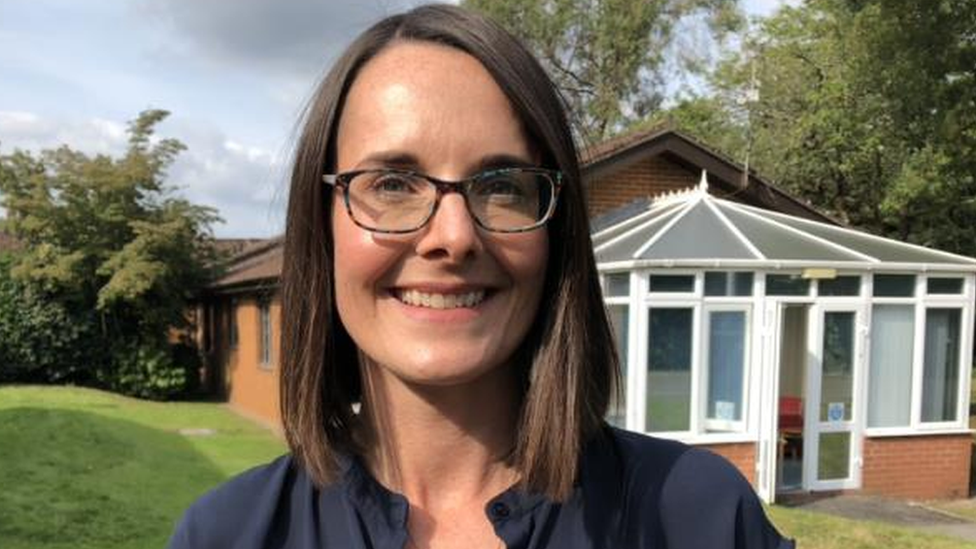
Dr Samantha Cox said the tests introduced "precision medicine" for patients
Velindre clinical oncologist Dr Samantha Cox said: "What this genetic testing does is help provide clinical teams with the tools they need to identify the best treatments.
"It's about introducing precision medicine for the benefits of patients, because we know that if we can target specific genetic changes in the DNA, we can switch off those signals which are telling the cancer cells to grow more effectively.
"Where we compare the newer anti-cancer targeted therapies with more traditional therapies, like chemotherapy, we know the outcomes are often better in terms of controlling the cancer better and helping patients live for longer," she added.
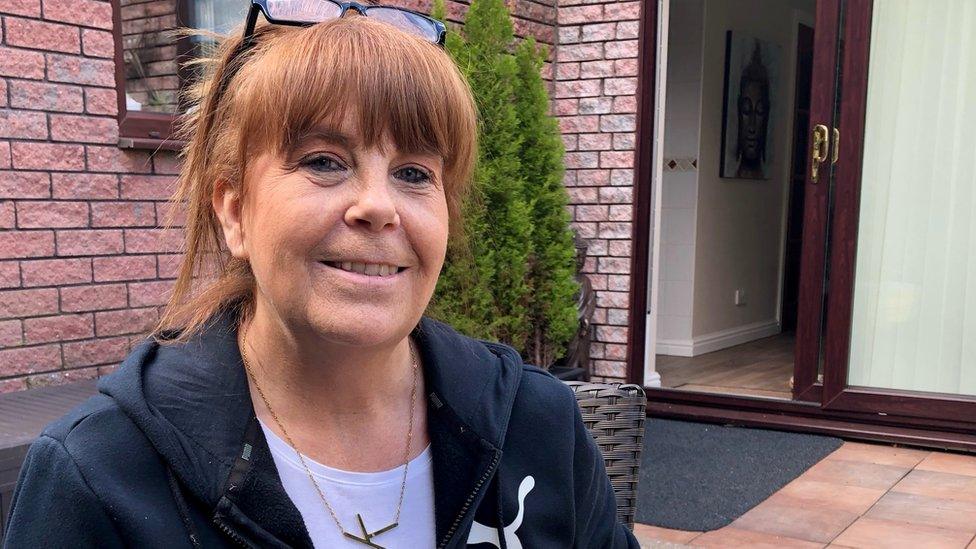
The new technology means Kate Molton can be treated with just one tablet a day
Kate Molton, from Cardiff, was diagnosed with stage four lung cancer in 2017.
After testing, doctors found she did not need chemotherapy.
The 57-year-old said she "jumped at the opportunity" of an alternative.
"Due it being stage four cancer, I thought I would need to have a much longer chemo programme," she said.
"I was frightened chemo was the only option when I was first told."
Instead Kate was given medication to take at home.
For the past four years she's taken just one tablet a day, which has let her carry on working and living normally.
"There are side effects, but to me it was preferable to the alternative of chemotherapy," Kate said.
"You learn to live with them, or you can get other medication to treat the side effects too.
"Some of the side effects can be horrendous, like skin splitting down the side of your nails or a rash on your body, but you can get cream which addresses that problem."
She said the pills meant people did not even know she had cancer.
"I run a completely normal life," she said. "The most debilitating condition I have is rheumatoid arthritis."
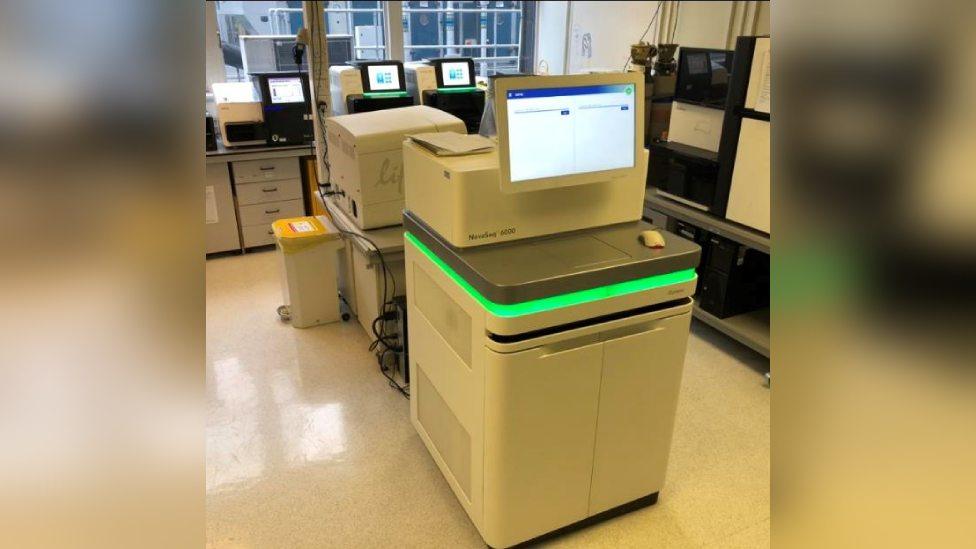
The system will also let doctors test for more types of tumours
Wales' Health Minister, Eluned Morgan, said: "CYSGODI puts Wales at the forefront of genomic testing in the UK and cements our place as a leader in this field.
"This service will provide ground-breaking testing and treatment options for people with cancer and will support healthcare professionals to routinely care for more people using the latest genomic advances."

MOTHERS, MISSILES AND THE AMERICAN PRESIDENT: The story of Greenham told like never before
FIERCE AND FABULOUS: Hayley Goes... exploring the issues of her generation in a brand new series

- Published3 September 2021
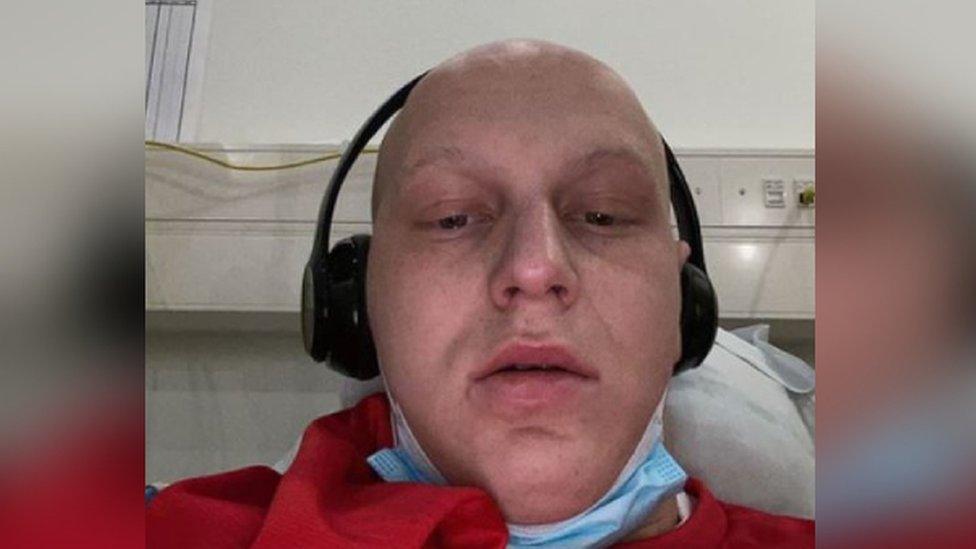
- Attribution
- Published13 September 2021

- Published3 June 2021
